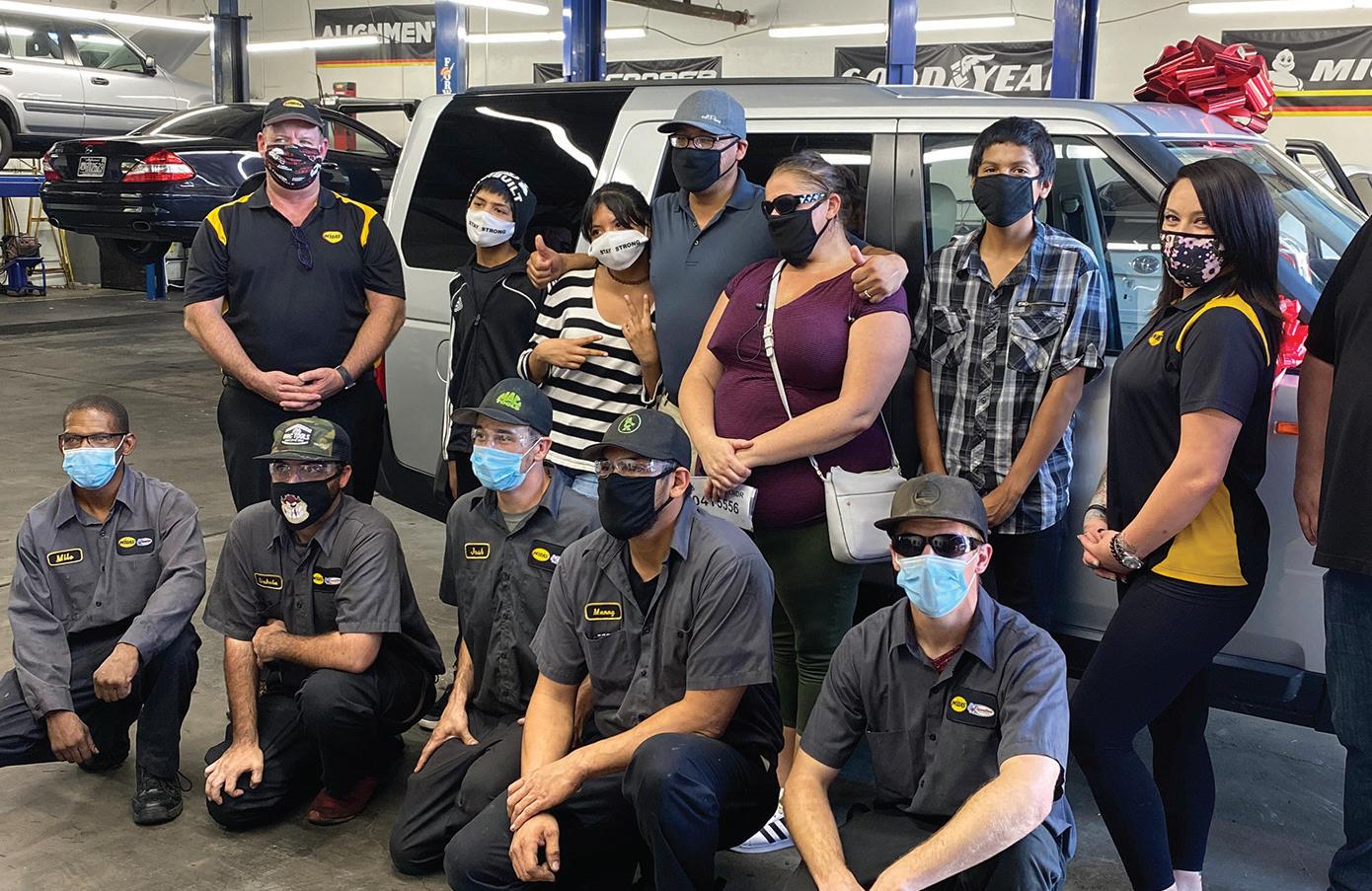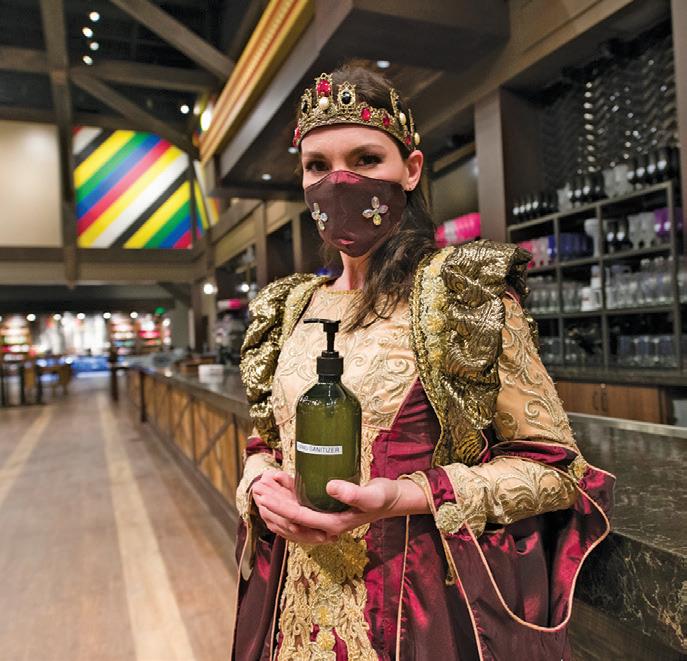SCOTTSDALE PROGRESS | WWW.SCOTTSDALE.ORG | AUGUST 2, 2020
FOOD
Food & Drink
Scottsdale.org l
@ScottsdaleProgress
& DRINK
29
/ScottsdaleProgress
Culinary school gets interns experience
BY KRISTINE CANNON Progress Staff Writer
ust three years ago when Le Cordon Bleu Culinary Institute of Scottsdale, the largest culinary school in the area, shut its doors, the Valley’s restaurant industry experienced a unique challenge: too many restaurants and not enough culinary school graduates to fill positions. Now, the industry’s facing the exact opposite problem: too many students and not enough open positions. So, where exactly do these recent culinary school grads go to gain crucial handson experience with paid internships? At Arizona Culinary Institute, a boutique culinary school in Scottsdale that offers a single comprehensive diploma, they’re reabsorbed into the program. “When the restaurants were forced to close, we developed a new curriculum that was advanced beyond what they were doing in a standard program in order to compensate for the fact that they weren’t having this real-world experience,” said Erin Coopey, director of education and chef instructor. ACI used to have three to four recruiters visit each week. Since the COVID-19 pandemic began in March, however, they had their first visitor two weeks ago: Michelin-starred, James Beard Award-winning chef Alex Stratta. Stratta hired four students: three to work in the kitchen and one to work service at his new fast-casual restaurant, Stratta Kitchen, slated to open Aug. 3. “It’s crucial,” Stratta said of paid internships. “I think going to culinary school is the equivalent of going to high school: You learn the real basics and then you go work with somebody that actually can mentor you. And I want to provide that kind of MBA-type education for chefs.”
Peoria resident and Army veteran Anthony Bowdrie is a student at Arizona Culinary Institute in Scottsdale. His original post-graduation plan was to complete an internship overseas, possibly in Italy or Spain, but the pandemic would soon change that. (Pablo Robles/
Erin Coopey is the director of education and chef instructor at the Arizona Culinary Institute, a boutique culinary school in Scottsdale that reopened in May after closing at the end of March due to COVID-19 and has gone through many changes since. (ACI)
Progress Staff Photographer)
Stratta’s own mentors were impressive. He was invited by Alain Ducasse to join his team at the three Michelin-starred Louis XV in Monaco and worked under Daniel Boulud, who led him at Le Cirque in New York. “I was trained by the best, and it was my duty to pass that on. At least, that’s what I was told: that it was my responsibility to show the next generation what I was taught, so we can keep a tradition alive,” Stratta said. ACI also understands this. When ACI canceled classes on March 27 for one month and then resumed them on May 4, they were already brainstorming ways to rearrange policy and refocus their curriculum. When students began having entry-
level job offers rescinded, leaving students with nowhere to go, ACI absorbed them back into its program. “We really do work hard to make sure that we are trying to dial in on what that student really wants because, ultimately, their placement and their successes are a plus for us as well,” Coopey said. “We’re not in the grinder business of ‘let’s just stick them wherever.’” The Arizona Biltmore, the Phoenician, Gertrude’s Restaurant at Desert Botanical Garden, Rusconi’s American Kitchen, and resorts such as Casino Arizona and Talking Stick Resort, are among ACI’s partners. After six months of the eight-month in-house program, the students are required to complete an internship — typically a paid internship. “We have a placement director who
works with many local restauranteurs and resorts and casinos to find the right position for our students,” Coopey said. “We try to always make sure that we were working very closely with the students to get a sense of where they want to be and how we can facilitate that happening.” Stratta’s visit is a hopeful sign of increased recruitments and off-site internships. However, while “things have begun to loosen up,” Coopey said that “it’s up and down each week.” “We’re just finding our way through the best we can in terms of the program changing here,” she said. ACI hosts five professional kitchens in their custom-built, 18,000 square-foot facility. Here, they teach courses like basic culinary arts, baking, meat fabrication and saucier and advanced baking and showpieces. In response to the pandemic, ACI not only implemented full-time use of masks and gloves, decreased their already small class sizes to less than 10 to promote social distancing, and began taking all staff and students’ temperatures upon entry, among other precautions. The school also brainstormed ways to supplement their very hands-on, tactile program with possible online classes and resources. “We practice a very classic approach to the culinary world. Everything is grounded in French technique, but it is a very hands-on program with a really great student to instructor ratio. So, that remains the same,” Coopey said. “However,” she continued, “with the fear of not knowing if we could have to be forced into lockdown, we have explored a partnership with an online culi-
see ACI page 30



